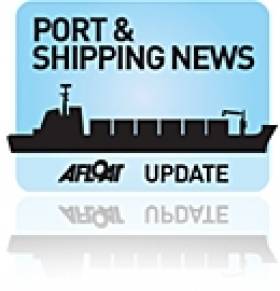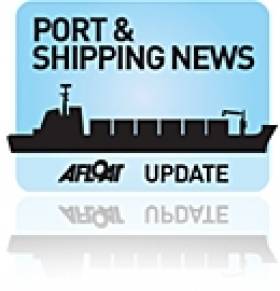Displaying items by tag: Shortsea Shipping
ShortSea Shipping Conference Bound for Port of Huelva, Spain - 28 November
The ShortSea Shipping Annual Conference this year is bound for the Port of Huelva, Spain on 28 November, with the conference title of "Short Sea Shipping: Efficiency, Sustainability, and Connectivity in the Service of Maritime and Land Logistics Chains."
The conference is to be hosted by the Port Authority of Huelva and is organized by the Spanish Association for the Promotion of Short Sea Shipping (SPC, Spain) and is also under the Spanish Presidency of the European Shortsea Network (ESN).
Featuring at the event will be a high level of national and international speakers, both institutional and sectoral. It will be developed around 3 axes with a huge impact on the competitiveness of Short Sea Shipping through Connectivity, Efficiency and Sustainability.
Also taking place is the EALING Project event which will be present at the conference with a dedicated corner to involve local stakeholders and showcase the project results. The event's acronym stands for ‘European flagship Action for coLd ironing ports’, aiming to tackle the challenge of electrifying maritime transport for a more sustainable TEN-T Maritime Network.
As for the final EALING event, this is to be held on 29 November (in Valencia), where the project is co-financed by the Connecting Europe Facility (CEF) of the European Union.
For further information on the Short Sea, to view the program and register (spaces limited) click here
Information on the EALING project along with the event.
Ship Snapshot: Cargoship Scrap-Trades On the Irish Sea
#ShipSnapshot – Lady Adriane berthed at Wicklow Port this morning in the wake of another short-sea trader, the 89m Bounder which at the weekend was loaded with scrap metal, writes Jehan Ashmore.
It was a busy scene as trucks shuttled between the Bounder and a nearby recycling plant. A Liebherr crane was employed to grab the scrap and lower into the hold.
Also on the Packet Pier were logs (round timber) stacked high and awaiting removal. This cargo had been discharged from Ceg Cosmos, a smaller ship that called last week on a typical passage from Scotland.
Both these cargoes were handled through local shipping agent, R.F Conway & Co. (Conway Port) which among trades also handles timber products, notably through Scotline. The shipping company have recently taken on a time charter of Lady Adriane. Afloat will have more on this to report.
On completion of loading the scrap metal, Bounder departed Wicklow on Sunday.
The 3,223dwt vessel arrived yesterday at Liverpool, where the scrap-metal was to be discharged in Alexandra Dock Branch No.2.
EU Sets its Sight for European Shortsea Shipping
#Shortsea – SeatradeGlobal reports that the European Union is making great efforts to shift freight movements away from land transportation to sea.
Greece's shortsea shipping sector is promoting an ambitious plan to connect shortsea shipping with river transport within, and outside, the EU.
The powerful Hellenic Shortsea Shipowners Association (HSSA) has called on the Greek EU presidency to back a new action plan – Naiades II – mapped out by the European Commission to strengthen inland waterways with the aim to improve the operational, economic and environmental performance of the sector.
In Europe, shortsea shipping is at the forefront of transportation policy. It currently accounts for roughly 40% of all freight moved in Europe and the aim is to increase this. For much more on this story follow this link.
Shortsea 12, European Convention
#PORTS & SHIPPING - The Irish Maritime Development Office (IMDO) and Coastlink are to jointly host Shortsea 12, The European Shortsea Convention at the Mansion House, Dublin on 24th May 2012.
This year's event sponsored by the Dublin Port Company, will bring together Europe's senior executives, representing leading Shortsea operators (bulk and unitised) shippers & buyers of transport services, port and maritime terminal operators, logistics and supply chain companies.
The convention will provide a platform to network, discuss and debate current industry issues. In addition it will focus on the key Industry issues that are informed by the industry:
• State of the Shortsea Markets.
• Views of major European Exporters and Supply Chain managers.
• Analysis of current issues facing Shortsea Ports and Shipowners
A pre-conference high-level networking event will be hosted on the evening of the 23rd of May for delegates and industry executives.
For further information about Shortsea 12 click HERE

























































